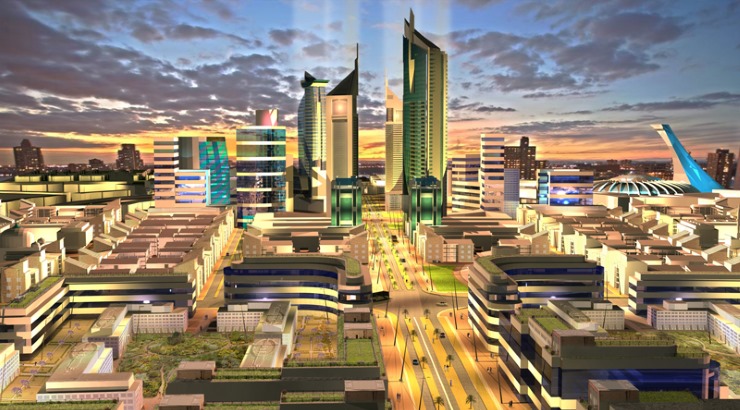Project News
Doubts Mount Over Future of Konza City as Project Stalls
An unfinished building in an arid field is the only sign of progress.

In 2008, when top government officials announced plans to build Konza – a Sh1.5 trillion technology city in Machakos, 60km southeast of Nairobi, few Kenyans took them seriously.
Six years later after the ambitious project was launched by President Mwai Kibaki, the doubts have only grown exponentially with critics now openly saying the project was ill-conceived from the start.
Work officially began in January 2013. But a tour of the site leaves more questions than answers. An unfinished eight-storey building in an arid field is the only sign of progress in the project that seeks to make Kenya a regional technology hub.
“It has taken too long and I think people have moved on,” Josiah Mugambi, founder of Alba.one, a Nairobi-based software company, who was initially excited by the “Africa Silicon Savanna” project, said in an interview with Reuters.
Such is the skepticism that even those with the most to gain from Konza, which is fashioned after America’s Silicon Valley, acknowledge it looks far-fetched.
Interestingly, despite a host of local and international tech giants initially expressing an interest in investing in the proposed city, the business world now appears to have shifted its focus to Rwanda, which is building its technology hub.
“Nobody can wait that long for a city to be built. For a tech entrepreneur, they think about where their startup will be two to three years down the line,” said Mr Mugambi.
RELATED: Excavation Work Underway for Sh9.4bn Konza University
Rwanda’s Kigali Innovation City, which was launched in 2015, has already made remarkable progress – with its completion now slated for next year. The city is designed to host 50,000 people in universities and technology firms on 70 hectares just outside Kigali.
Eko Atlantic City near Lagos, Ghana’s Hope City and an Ethiopian city styled as the real Wakanda after the movie “Black Panther” are the other smart cities competing with Konza.
“All these other cities have better proximity, have better density and have better collaborative feedback loops,” says Nairobi-based independent financial analyst Aly-Khan Satchu.
“We are now at a serious disadvantage vis-a-vis these other countries.”
Mr Satchu, who is one of the sternest critics of the Konza City plan, believes there are no fundamentals to support such a development at its current location.
“This is miles from anywhere. They are not leveraging the existing infrastructure … It is assuming that you can bring in academia, you can bring in venture capital, you can bring in corporates,” he says.
The government, however, insists that the project is on despite the slow pace of work.
Konza Technopolis Development Authority (KoTDA) chief executive John Tanui says the government has committed to invest more than Sh80 billion to expedite the project.














